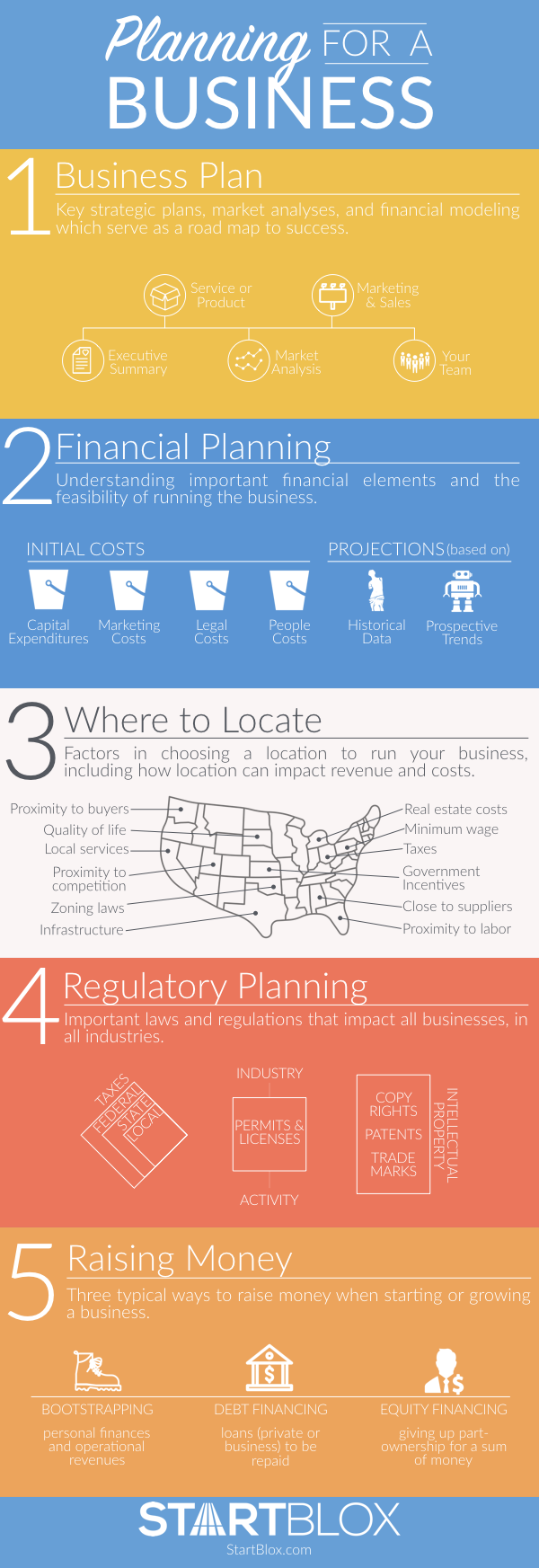A great business starts with a great plan.
Welcome to Small Business Week – the week when our community recognizes the critical contributions of small businesses. From helping to grow the economy to providing innovative solutions to complex problems, small business is a crucial aspect of the world we live in today.
This week, communities across the US are hosting events that are designed to celebrate, educate, and prepare small businesses for success. At StartBlox, we’re lucky enough to have that role year-round. To help kick off this week, we have consolidated some of our most critical content. If this is your week to start up, start with your plan.

Planning for your business can be a challenging process since it’s a new activity for most people. The business plan often lacks the glitz and glamour that entrepreneurs may hope for when starting out. And it doesn’t evoke the feeling of the fast-pace workload that we have a love-hate relationship with.
Arguably, planning for your business might seem to be the most boring part of the process. However, if small businesses are to succeed, proper planning is an essential step and you want to set off on the right foot. Over 28 million active businesses in the U.S. did it already, so you can successfully do it, too.
What to consider when planning for your business:
The Business Plan: Key strategic plans, market analyses, and financial modeling which serve as a road map to success. When starting work on your business you-can-see-it-written-out plan, keep in mind that your plan should include the following details:
- Executive Summary
- Service or Product
- Market Analysis
- Marketing and Sales
- Your team
Moreover, your business plan should answer the most important questions of your business. Who are your customers, how will you monetize, or what is your value proposition?
Financial Planning: Understanding important financial elements and the feasibility of running a business. Your financial plan should include both your initial (startup) costs, as well as your projected revenue in the future. Wondering how to find these out? Startup costs typically fall into the following buckets:
- Capital Expenditures
- Marketing Costs
- Legal Costs
- People Costs
Your projections will look into the future financial health of your new company. To find this out, you can look into historical data, market potential, or prospective trends.
Where to Locate: Factors in choosing a location to run your business, including how location can impact revenue and costs. Similar to buying a home, there are countless moving parts in choosing where to locate your business. You should prioritize what matters most to your business plan, and research those first. A few of the factors to consider may be:
- Proximity to Buyers
- Local Services
- Proximity to Competition
- Real Estate Costs
- Taxes
- Available Suppliers
- Proximity to Labor
Regulatory Planning: Important laws and regulations that impact all businesses. Depending on your industry, product, location, or other factors, your business may have to cope with specific regulations. Across all businesses, entrepreneurs should keep in mind:
- Taxes
- Permits & Licenses
- Copyrights
- Patents
- Trademarks
Financial Planning: Ways to raise money for starting or growing a business. Businesses typically raise money to get started or to scale up in one of three ways:
- Bootstrapping
- Debt Financing
- Equity Financing
Each of these has very real implications for how the startup will be governed and continue to grow over the course of their development. Founders should be informed on the pros and cons of each before making a final decision.
Planning for a business can be intimidating, but with a list of what you need to know, it becomes easier. Your time investment in creating a plan will have long-term implications for your future, so we encourage all entrepreneurs to use Small Business Week to get informed and get started!




